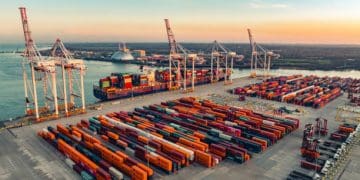China’s Ministry of Commerce announced it is assessing recent proposals from the United States to initiate discussions regarding tariff-related trade measures.
In a statement released Friday, the ministry confirmed that the U.S. has “recently, through relevant channels, actively conveyed messages to China, expressing a desire to engage in talks.” China is currently “evaluating this,” the ministry added.
The remarks follow reports earlier in the week from Chinese state media indicating that the U.S. administration had reached out through multiple channels to re-establish dialogue on trade.
Heightened tariffs in recent years have reshaped trade flows between the two countries, and observers have been closely monitoring for signals of possible policy shifts. Businesses and investors globally have raised concerns about the long-term economic implications of sustained tariffs, citing rising costs and supply chain disruptions.
The International Monetary Fund recently adjusted its 2025 global growth forecast downward to 2.8 percent from 3.3 percent, while JPMorgan Chase estimated a 60 percent likelihood of a U.S. recession within the same period.
Christopher Beddor, deputy China research director at Gavekal Dragonomics, noted that while China may be open to talks, it also retains a range of policy tools to manage its economic position. “The tariffs are already in place, but they also have export controls and can launch more probes into foreign companies,” Beddor said. “That said, policymakers understand that a de-escalation would be preferable.”
Statements from U.S. officials have also signaled a possible openness to dialogue. In a recent interview, U.S. Secretary of State Marco Rubio said that economic conditions are encouraging both sides to consider renewed engagement. “The Chinese are reaching out, they want to meet, they want to talk,” Rubio said.
China’s Ministry of Commerce reiterated its consistent stance: “If there are talks, the door is open.” However, it added that discussions should be based on mutual respect and accompanied by concrete steps to address outstanding concerns, including the removal of additional tariff measures.
Analysts believe any engagement between the two countries would reflect the deep interconnection of their economies. Steven Okun, CEO of consultancy APAC Advisors, noted that while meetings between officials would not be surprising, labeling them as formal negotiations would be premature at this stage.
#SupplyChainNews #TariffUpdates #GlobalTrade #TradeNegotiations #EconomicOutlook















